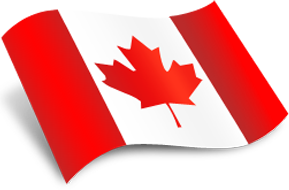
A Quick Guide To Car Insurance
A Quick Guide To Car Insurance

What do you do when disaster strikes? When you’re on a tight budget, an unexpected cost can floor you. Repairing or replacing your car after an accident is a serious cost, and losing your transportation can affect your career and your life more generally. While emergency loans do exist, it is better to prepare for the worst by purchasing car insurance. There is also another good reason to have car insurance in Canada. Driving without insurance is a criminal offense. If you are caught, it can carry a substantial fine. The amount varies from province to province, but no matter where you are, it’s a significant chunk of cash. A driver in British Columbia will pay a minimum of just under $600, while those foolhardy enough to be caught driving uninsured in Ontario can expect a minimum fine of $6250 after the victim surcharge is included.
Insurance comes with a lot of jargon. When you ask an insurer how much they would charge you to insure your vehicle, they will give you a quote or estimate. These are subject to change when you finalise the policy. Your quote will depend on several factors. These include personal information about the primary driver, the person that will drive the vehicle most often. Other people who use the vehicle are occasional drivers, and they will also have an impact on your quote. Young men are particularly expensive to insure. The model and age of your vehicle will also have an effect: powerful, expensive, old, or frequently stolen vehicles generally cost more to insure. Your location will also affect the price of your insurance. Once again, Ontario is particularly expensive. A middle-aged woman driving a Toyota Prius in British Columbia can expect a fairly modest quote, while an 18-year old man living in Toronto looking to insure his Mustang could be forgiven for deciding to take public transport instead.
Once your policy is finalised, you can look forward to paying a premium. This is just the amount you pay for your insurance. Payment periods vary from policy to policy. In return for your premium, you get insurance coverage. Different policies will cover different things. Liability insurance is the cheapest and most basic, and protects you from the legal costs when you do damage to someone or something else with your car. It can also compensate you for medical expenses and loss of income from your crash. Every driver has to have this much insurance. Collision coverage is a step up, and provides compensation for damage caused by collision with another vehicle or object. Collision coverage is usually the most expensive part of an insurance policy. Accident benefits set out how much the insurance company will pay for medical costs, loss of income, funerals and so on. Finally, comprehensive coverage protects you against non-collision hazards too, like theft, deliberate damage by other people, and being hit by flying or falling objects. If you need your car for work, you should also look into loss of use coverage. This covers rental car expenses while your own vehicle is being repaired.
When you get into an accident, the insurance company pays for your claim minus a deductible. The deductible is the amount you pay before your insurance coverage kicks in. If you had a deductible of $100 and your car suffered $250 of damage in a collision, you would pay $100 and your insurance company would pay $150. The deductible means that buying collision insurance for older, cheaper cars might not be worth it. If the deductible is more than the car is actually worth, it could be time for a new car. The amount paid out will also depend on if you were at fault. Insurance companies have standard rules to determine whether you were at fault or not. An innocent driver gets more insurance coverage than a driver who dented his car trying to drift in the Loblaws parking lot.
If you do enough damage to your vehicle, the insurance company may declare it a write-off. This occurs when the estimated repair cost is close to or more than the value of the vehicle minus its scrap value. The insurance company will offer you a one-time cash settlement for your vehicle. You may choose to dispute the amount, and arbitration processes are available. The terms of arbitration will depend on your original insurance policy. The insurance company takes possession of the vehicle, designating it either as salvage (meaning that it can be repaired and driven after thorough inspection) or irreparable (meaning that it can never be driven again). If you would like to keep the remains of your vehicle, its scrap value will be subtracted from your settlement.


